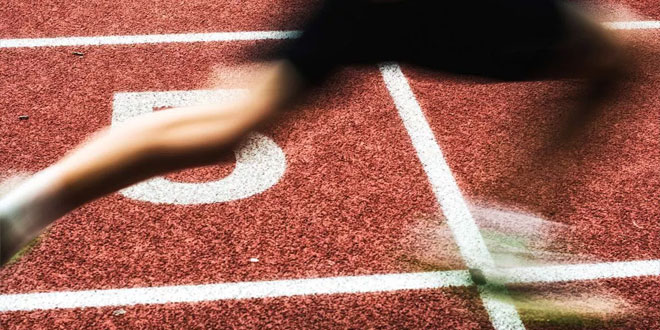
In sports, does ‘practice makes perfect’ really work? Science says, NO
Despite previous research and the old saying of “practice makes perfect”, a new study suggests that when it comes to sport, practice accounts for a much smaller part of athletic performance than previously believed.
In a new study by Case Western Reserve University, in the US, researchers analyzed 52 data sets on the relationship between practice and performance to find that overall, practice accounted for 18 percent of the variance in sports performance, and just 1% of the variance in performance among elite-level athletes. The study was published in the journal Perspectives On Psychological Science.
Although the amount of variance that practice accounted for did differ depending on the athlete’s skill level, the results go against the long-held belief that 10,000 hours practice in a sport or subject can make anyone an expert or elite athlete, a theory inspired by research from Florida State University professor Anders Ericsson in the early 1990s that has been popular ever since.
“While practice is necessary for elite athletes to reach a high level of competition, after a certain point, the amount of practice essentially stops differentiating who makes it far and who makes it to the very top,” says Brooke Macnamara, lead author of the study.
The concept or idea that 10,000 hours is tapped into our mindset of hard work and dedication leading to excelling in a sport is a common one. “But it does not account for the inherent differences across people and across sports,” Macnamara adds.
And although earlier research also suggests that starting early can also help athletes reach a higher performance level thanks to more time spent building skills, the team’s results provided evidence to suggest that the opposite may be true. Starting sports at an early age doesn’t necessarily give athletes an extra advantage over their competitors.
According to the study, higher-skill athletes start practicing their sport around the same age as less-skilled athletes, or even a little later.
The team also believe that athletes may actually benefit from waiting longer to specialize in one sport, as a more physically mature athlete can learn an activity more easily and with a lower risk of injury, with Macnamara adding that, “People and parents who buy into the 10,000-hour rule can push early specialization in a sport, leading to physical or mental burnout before it’s clear that a child even has a penchant for that sport.”
Other factors that the team believe influence athletic performance include genetic attributes such as fast-twitch muscles and maximum blood oxygenation level, and cognitive and psychological traits and behaviors such as confidence, performance anxiety, intelligence and working memory capacity.
“Human performance is incredibly complex,” says Macnamara, “Multiple factors need to be considered, only one of which is practice.” The team now believe that sports coaches, athletes, and parents can use the findings to reassess the importance of practice time and how much to invest in it.
Source: AFP Relaxnews

